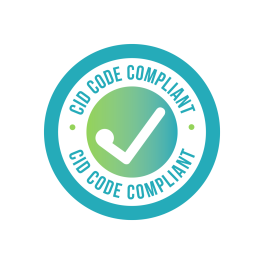About the Code of Conduct
The CID Code is a voluntary, self-regulatory sector code of good practice that aims to improve international development outcomes and increase stakeholder trust by enhancing the transparency and accountability of signatory organisations. It serves both as a guide to good practice and as a risk management document.
The CID Code serves both as a guide to good practice and as a risk management document. It helps professionalise the whole sector through:
- Providing an opportunity for CID members to improve the effectiveness of their development work
- Better management of risk by Boards with respect to finances and donors
- Learning and sharing information and good practice within the CID membership
- Providing effective tools and guidance for organisational development and continuous improvement
- Increasing accountability and transparency
A commitment to the Treaty of Waitangi by CID member organisations is fundamental to the way they approach international aid within New Zealand. The CID Code is a living example of respect for equality in partnership, both within New Zealand and overseas.
The Code of Conduct is an evolving document, and as such undergoes a regular review process to ensure it is kept current and fit for purpose. It is currently being reviewed for 2024 but the previous 2019 review can be read here:
2019 Review of the CID Code of Conduct
By 2020 100% of the membership had gained compliance with the CID Code and in 2024 several member organisations are due to begin their third triennial reassessment.
CID Code Compliant Tick
CID members who are granted Code Signatory Status can use the CID Code Compliant ‘tick’ in their communications with their donor public and stakeholders. The CID Code Compliant ‘tick’ signifies that the organisation has met the standards and expectations of corporate governance, transparency, accountability, and good practise, as outlined in the CID Code.
Compliance
Organisations show they are compliant through the completion of the Compliance Self-Assessment (CSA) process every three years. The CSA is a due diligence process that allows organisations to track and report on the Principles and Obligations. Organisations provide a narrative that describes the way in which compliance is achieved and provides CID with copies of key documentation as evidence. All information managed in full confidentially, in accordance with the CID Confidentiality and Information Management Policy.
There are five Mandatory Principles in the Code of Conduct:
- B.1.5 Non-Development Activity
- B.2.3 Control of Funds and Resources
- B.3.4 Protection of Children
- B.5 Emergency Management
- D.6 Complaints Handling
To reach CID Code Signatory Status, an organisation must be fully compliant with all Mandatory Principles (except organisations that do not engage in emergency management work and are therefore exempt from principle B.5)
The other principles and obligations in the Code are progressive, meaning that organisations can indicate if they are progressing in implementing the obligations to reach full compliance over time.
For members undergoing the CSA process, the CSA form and Implementation and Reference Guide will be provided. The Implementation and Reference Guide has been developed to assist organisations in understanding the Code and meeting its requirements. It gives more detailed information on how signatories can comply with the requirements of the Code.
Other resources to help with the Code of Conduct Self-Assessment process are available in the Code of Conduct Resources page.
The membership of CID adopted a Code of Conduct (referred to as “the Code”) in October 2014. The latest version of the Code, dated October 2021, incorporates all recommendations and amendments from this review as approved by the CID membership at the 2021 CID AGM.
CID Code Signatories
- Adventist Development and Relief Agency (ADRA)
- Anglican Missions
- Caritas Aotearoa New Zealand
- ChildFund New Zealand
- Christian Blind Mission (cbm)
- Christian World Service CWS
- Circuit International
- Council for International Development
- Engineers Without Borders NZ
- Fairtrade Australia & New Zealand
- Global Development Group
- Habitat for Humanity New Zealand
- Hagar New Zealand
- Himalayan Trust
- Hope Street
- International Needs Humanitarian Aid Trust
- New Zealand Ethnic Women's Trust
- Orphans Aid
- OXFAM New Zealand
- Rotary New Zealand World Community Service
- Save the Children New Zealand
- Sexual Wellbeing Aotearoa
- SurfAid International
- Tearfund New Zealand
- The Family Centre
- The Fred Hollows Foundation New Zealand
- The Leprosy Mission New Zealand
- The Salvation Army New Zealand, Fiji, Tonga & Samoa Territory (NZFTS)
- The United Nations Association of New Zealand (UNA NZ)
- UnionAID
- United Nations International Children’s Emergency Fund New Zealand (UNICEF NZ)
- United Nations Women National Committee for Aotearoa New Zealand
- Volunteer Service Abroad – Te Tūao Tāwāhi (VSA)
- World Vision New Zealand
- World Wildlife Fund (WWF)
- Youth With a Mission Ships Aotearoa (YWAM)
